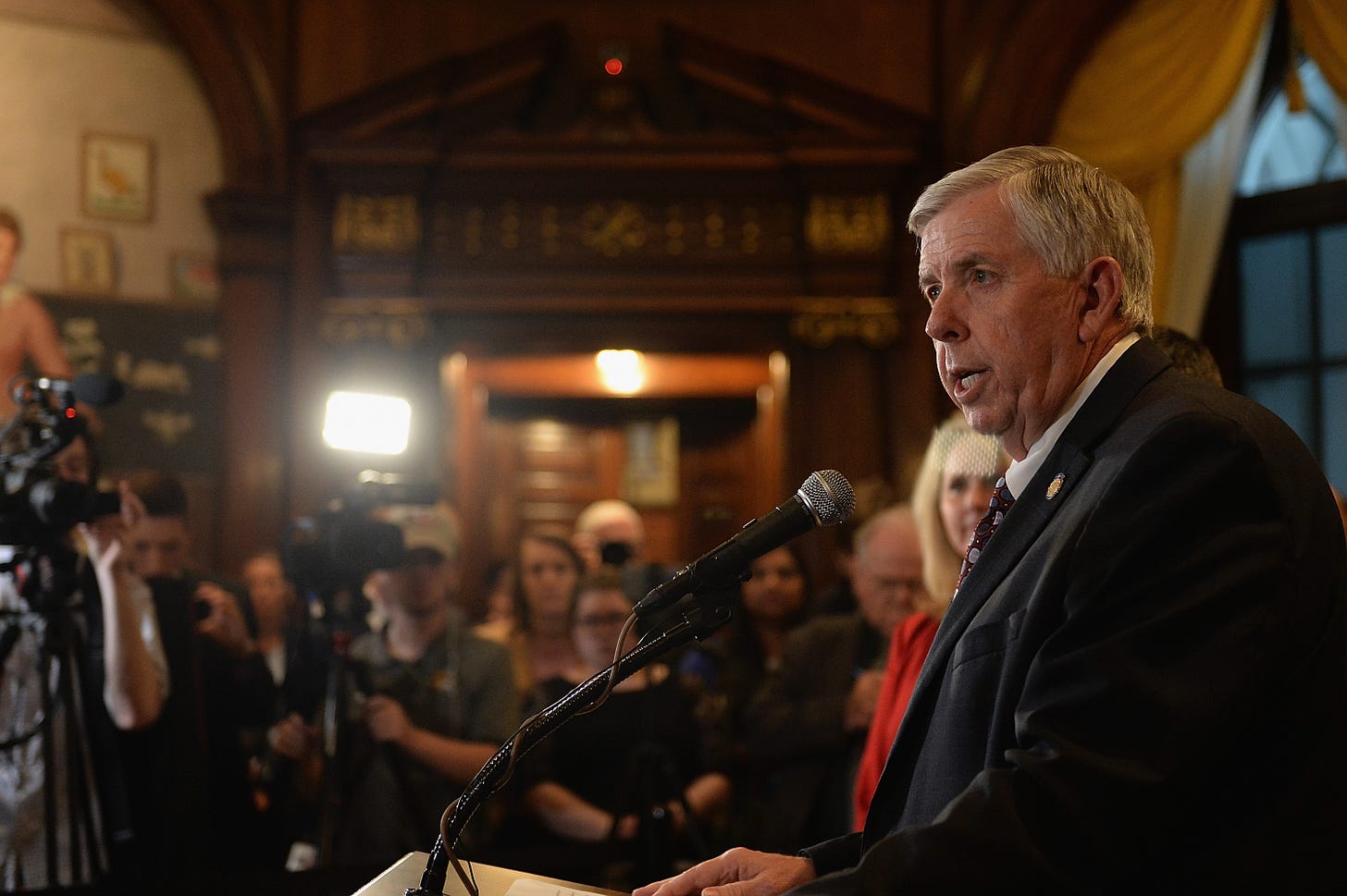A Pro-Life Murder
The pro-life movement's reaction to the execution of Marcellus Williams is everything that's wrong with our politics.

1. Pro-Life
Last week the state of Missouri executed Marcellus Williams for the crime of murder. In 2001 he had been convicted of killing Lisha Gayle on August 11, 1998. Police and prosecutors alleged that he had broken into Gayle’s home and stabbed her 43 times with a butcher’s knife.
There’s just one problem. Williams almost certainly didn’t do it.
The evidence presented against Williams at trial was almost entirely based on the testimony of two incentivized witnesses. There was no evidence of his DNA on the murder weapon. And there were no fingerprints on the weapon because the district attorney’s office had mishandled it.
Here’s David French on the case:
The crime scene itself was horrific, and it included a large amount of physical evidence. There were bloody footprints in the house, but they did not match Williams’s shoes. There were bloody fingerprints, but they weren’t a match for Williams, either. Neither was the DNA found under Gayle’s fingernails, and neither were the hair samples found at the scene.
As French says, in order to believe that Williams committed the murder, you have to believe that he made it through this horrific crime without leaving any physical evidence—and that some other unidentified individual showed up after killing and left a ton of physical evidence before the police showed up.
You can’t prove a negative, but how certain are people that Williams was innocent?
In January of this year, the current St. Louis prosecuting attorney filed a motion to vacate Williams’ conviction because he did no longer believed the case brought by his own office.1
It is not every day that a prosecutor tries to overturn a conviction obtained by one of his predecessors.
And yet, the state of Missouri executed Williams anyway.
A case like his can shake whatever faith you might have in the criminal justice system.
But what shakes me even more is the extent to which the Williams’ case illuminates the failures in our political system.
Courts will get things wrong. Always. There is no perfect justice.
The hope is that by setting up overlapping systems of review, initial mistakes can be found and reversed. But even appeals and review aren’t enough. Mistakes get through. The failsafe in the system is supposed to be politics: In cases where a clear error survives the entire judicial process, there are political actors with the power to step in and prevent executions.
That’s what Missouri governor Eric Greitens did in 2017 when he issued a stay for Williams’ execution. After stopping the execution in order to prevent a miscarriage of justice, Greitens put together a board of inquiry to reexamine the Williams case.
So far, so good.
However, it’s not clear what this board actually did. It issued no report. And in June of 2023, the new governor, Mike Parson, summarily dissolved the board of inquiry. The very next day, Missouri’s attorney general, Andrew Bailey, asked the state Supreme Court to set an execution date.


